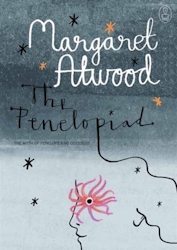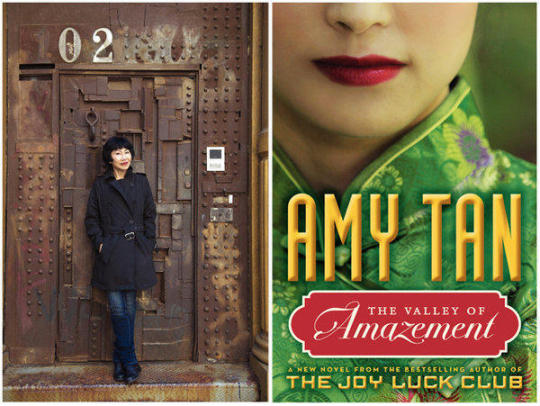Photo

Author’s Background
Margaret Atwood --- is a Canadian poet, novelist, literary critic, essayist, inventor, and environmental activist. She is the second child of three children. Atwood realized she wanted to write when she was at the age of 16. Even though she’s a known novelist she also published 15 books about poetry. She is the founder of a non profit literary organization called the Writers’ Trust of Canada who seeks to encourage the writing community of Canada. She also portrays female characters dominated by patriarchy in her novels. She gives importance on women's social oppression as a result from patriarchal ideology.
Summary
A low art which is an excerpt from The Penelopiad have garnered any reader’s attention through the opening section of the narrative stating the character’s already dead.

Penelope stated how she’s dead in the first line was already interesting. The narrative picks up when she described how she was a faithful wife to his eminent husband. She knew her husband is cheating on her and kept on telling lies but she stayed quiet and timid. She wanted to scream but sounded like an owl. She’s faithful but was almost tempted to do the same deed, to also cheat on her husband. After main events were over she realized how many people were laughing at her behind her back. They were mocking her, making jokes both clean and dirty. She ignored all of that, or rather kept her mouth shut because for her storytelling is considered a low art. She had a plan and knows when to attack, she knows when to make use of the opinions people had but she could care less for other’s opinions anyway. She’ll spin a thread of her own nevertheless.
UNLOCKING OF WORDS!
1. factoids - trivial item of news
It seems that this factoid interests you that much.
2. eminent - famous and respected within a particular sphere
My mom is an eminent doctor.
3. rampages - rush around in a violent manner
The rebels went on rampage, throwing stones and shooting guns.
4. jeering - make rude and mocking remarks
I tried to ignore the jeering crowd although it hurts.
5. fumbling - use the hands clumsily while handling something
He made a fumbling attempt to explain his behavior.
6. minstrel - a medieval singer or musician
My grandfather was once minstrel who performs every night.
7. preposterous - absurd or ridiculous
Stop giving me preposterous excuses.
8. unscrupulousness - not honest or fair
That businessman's unscrupulousness will surely lead his business into failure.
9. compulsion - being forced to do something
I gave in to one of my compulsions and bought chocolate ice cream for dessert.
10. plausible - seeming reasonable or probable
I thought her explanation was perfectly plausible
GUIDE QUESTIONS

1. Why does Penelope consider storytelling “a low art?”
Penelope consider storytelling a low art since the storytelling she talked about is the love shared between her and her husband. However, love is supposed to be mutual relationship between two people who try and make things work out. But, Penelope who claims to be faithful continued to be faithful but chose to ignore or set aside her true feelings about the sin her husband committed. That’s what makes it a low art.
2. How does Penelope’s portrayal differ from the traditional portrayal of Odysseus? What do you think of Odysseus?
Penelope’s portrayal differ from the traditional portrayal of Odysseus with its context about having own perspectives. Penelope’s portrayal focused more on her struggles being the one being cheated on. While the traditional portrayal of Odysseus paved the way for heroic acts he did that overshadowed his dark acts.
3. Based on Penelope’s perspective, how is she different from how the epic portrays her? What do you think of Penelope’s character in the preceding story?
Penelope’s perspective differ from how the epic portrays her in a sense that she views her husband as respectable and that she is someone who would try and gulp down all the insults she hears. But on the other hand, the epic portrays her as someone who stays quiet but waits for the right time to drop the bomb of her own.
4. What does she have to say about the “official version” of what happened? Why does she point this out?
The official version is Penelope being the one who cheats on her husband. The author tries to point this literary work coming from a woman’s perspective. She voiced out the power women in Greek culture never had through this contemporary twist of Homer’s “official version”.
5. Why does she call herself “a stick to beat other women with”? Do you agree with her? Why or why not?
I somehow agree with her on this context. She only wanted to point out the unfairness of the character development for women in this literary work. And how most women are viewed as unfaithful when most of the time it’s the other way around.
6. Why does Penelope say that she “sounds like an owl” when she tries to warn other women?
She "sounds like an owl" when warning other women because only a bit of sound can be heard. Owls are known for being calm. Whenever they make a sound, it goes out softly, very gentle to hear. Just like her, then even though she wanted to shout to other women, she can't because everything that she wants to say would be very soft to hear.
7. How much of ancient history do you think is fact and how much on gossip or exaggeration?
For me, ancient history as a fact would be proven by evidences like remains or ruins of particular things. But such is a gossip or exaggeration when it comes to its background, myths and/or legends according to the people living during that time.
8. Do you think a story is colored by the biases of the storyteller? Support your answer.
Well, it actually depends. If its her own original story, then yes, the story is colored by the biases of the to storyteller. But if not, like for example, making a story of a part of a person's life, then it should not be biased and instead should be based on the real happenings of a particular event of another person's life.
9. Do you think history is colored by the biases of the historian? Support your answer.
Well if the biases of the historian is based on the facts of a history, then yes, it's colored by its biases. But sometimes, some things may be exaggerated for it to look or think it really happened which really didn’t.
10. Does this story change the way you look at literature and history? Why or why not?
It doesn’t change because literature is a form of literary entertainment. It entertains people through reading or writing. And with the combination of literature and history, it gives such piece creativity in which a person could express his own way for him to be satisfied and for others to be inspired.
Individual Reflection

[ khelsly’s ]
Both literature and history are expected to clash and seeing how this made an impact on this literary work of Margaret Atwood, it made more sense how all writers take time in revising or thinking of a great concept they go for.This very excerpt whether it’s a twist from the original version it still gave flavor to both stories since all sides are heard and somehow made relevant perceptions of the issue. Though Atwood focuses more on female character portrayal it is clear that she knows how to grab a reader’s attention.
[ althea’s ]
Learning literature and history is very important. Knowing the history, the origin of particular things and places, it gives us the overwhelming feeling that we were given an opportunity to learn such history that may be one of the reasons of what is happening now. Learning literature, it gives us the idea of expressing ourselves through creative writings and inspiring ourselves through reading. And having them together would mean how creative a person's mind is. Through this, it may give information and at the same time, entertainment to all, especially to those who really are fond of reading.
0 notes
Photo


Amy Tan is an American writer born on February 19, 1952 whose works explore a mother-daughter relationship and the Chinese-American experience. She learned about her mother’s previous marriage to another man in China, with their four children and how her mother had the guts to leave these children behind in Shanghai. This incident became the basis and inspiration for Tan’s first novel The Joy Luck Club which consists of 16 related stories about the experiences Though she received many awards she also faced criticism for her complicity in perpetuating racial stereotypes and inaccuracies in recalling the Chinese cultural heritage. This alone made other writers and scholars accuse her of turning to Western presumptions and being a prejudice over Chinese people.
THE VALLEY OF AMAZEMENT
I was born with two extra pinkies in my hands. People think there was a familial tendency toward giving birth to octopuses. My parents were freethinkers whose opinions were based on reason, logic, deduction and of their own opinions. My mother accepted me for who I am until a family friend, who was also my piano teacher convinced her to remove my additional fingers. Few understood the shock it gave me considering a part of me was completely removed. It made me fearful at some point that people can authorized themselves to change parts of me without my permission. Thus, began my journey to know my attributes I needed to protect which I named scientifically “My Pure Self-Being”. At first I listed my preferences and dislikes, my strong feelings for animals then onto the secrets about myself that I collected. Mostly it was what wounded my heart and the very fact that they needed to be kept private was a proof of My Pure Self-Being. Later on, I decided to add my intelligence, other’s opinions, fears and revulsion and discomforts which later became worries. Few years later I encountered my first menstrual period. My mother explained to me reproduction “the biology that led to your existence.” That explanation sounded as if I were a mindless individual that entered this world only to be shaped through my parents’ guidance.
[ A view on the excerpt ]
What was Lulu’s reaction when she found out about the operation? Do you think her reaction is normal? Why or why not?
Lulu was shocked and upset knowing that a part of her was removed because it was undesirable and yes, her reaction is normal knowing that she felt unwanted ever since she was born and that they have to change her for her to be accepted.
Do you think the parents made a mistake in operating on Lulu\s fingers? Why or why not?
For us, i guess what the parents did was just for the sake of their daughter, Lulu, as well. This is because if they didn’t operate Lulu's hands, then she might be bullied which might lead her to depression or feeling unaccepted by everyone especially when she'll come to school or wherever she may be.
What is the narrator’s fear?
The narrator feared that people could authorized themselves to change parts of her without her knowledge and permission. This suggests that Lulu have accepted her indifference.
Why did the narrator dislike the way her mother described reproduction?
Lulu disliked the way her mother described reproduction because it somehow made her feel like the only purpose of her existence is by mere guidance of her parents. It implies that she is unwanted in the first place and that her parents are stuck with her.
What do you think is its effect on the narrator?
The effect on its narrator is that it wounded her knowing that she was not fully accepted by her own family the moment she was born. It also lead her to feel insecure of what she is now if not because of her past. And it gave her doubts if she was not changed.
What does it mean, that the narrator wanted to be true to herself?
The narrator meant that she really wanted to know what she really wants, what she desires, what she really is despite of the fact that she was not accepted in the first place. She wanted to know what part of her is needed to be protected so that whatever she might encounter, she would be able to surpass it.
Have you ever felt the same way? Why or why not?
Yes, of course we have felt the same way. We wanted to know who we really are and what we really want in life so that we would be able to accept who we are and be able to protect ourselves from the challenges that we might face in the near future. We also wanted to know our true selves so that we won’t be affected of what anyone will say against us because we know that we have fully accepted our own being.
Do you think the narrator is selfish? Why or why not?
Well, about the fact that her parents changed her is for her own good. But it was also painful for her when she knew she was not accepted by her own family because of her indifference. Maybe it's not about being selfish but it's about having the doubts and unanswered question deep in her heart of why it happened to her. It might be the reason why she can’t fully know herself because of the answers she eagerly wants to be answered but is ashamed or afraid to ask.
Is the narrator expressing an inherently Asian or American value? Explain your answer.
Honestly, it seemed like the author expressed more of the American value. Lulu portrayed the value of Americans on focusing more on individuality. She wanted to be ambitious in a way where she still accepts her indifference and dreamed of succeeding in life with her own intentions and not from other’s mere opinions or decisions since it is her life after all.
Do childhood revelations have lasting impact on one’s life?
Yes, because your childhood is the foundation of what you are now. What i mean is that your childhood memories may be the reason of what you are and/or aren't now. So basically, childhood memories have a lasting impact on one's life.
- INDIVIDUAL REFLECTION -
[ Khelsly’s ]
An excerpt of Amy Tan’s “The Valley of Amazement” directed me to think more about the mother daughter relationship in another perspective. Yes the intention of Lulu’s parents - her mother to be exact was to think about her future and what other people might say against her own child. However, it does not imply that what they did was entirely right especially about making Lulu feel unwanted. All she wanted was to feel the affection of a mother but that too, was taken away from her. I got irritated with how her mother explained reproduction to her the most. Yes parents are the first teachers of any child but does not mean a child can’t have his/her own desires and decisions few years on. And that’s what Lulu felt about her whole existence, that she’s considered a mindless blob but was shaped and only guided by her parents. So I guess this is why Lulu desired to truly know herself and have made a quest to fully acknowledge the many attributes she came to accept and love later on. That attitude of hers is what I admired the most, of how she reflected on herself and took the time to fix and love herself entirely even if it meant being more individualistic.
[ Althea’s ]
Knowing oneself is really an important thing especially that it would be able to make your life happier and make your decisions firmer. What I mean is that if you really know and accept yourself, you would be able to know your wants and would be able to stand for it. Whatever anyone would say about you, it would just be nothing since you know yourself more. But unfortunately, people do really have their own insecurities. Some people would judge you not because of the good things that you do but because of the mistakes that you committed. This may be frustrating but that’s just what the world is. You can’t do anything about it. Amy Tan’s book may serve as an inspiration of accepting oneself and discovering your attributes, may be bad or good. This would teach everyone that no matter what people may do against you, you just have to keep moving forward and always hope that someday, you would be able to learn that not everyone will like you and instead, should focus on accepting yourself more and more because what is more important is your perspective of yourself than of others.
0 notes